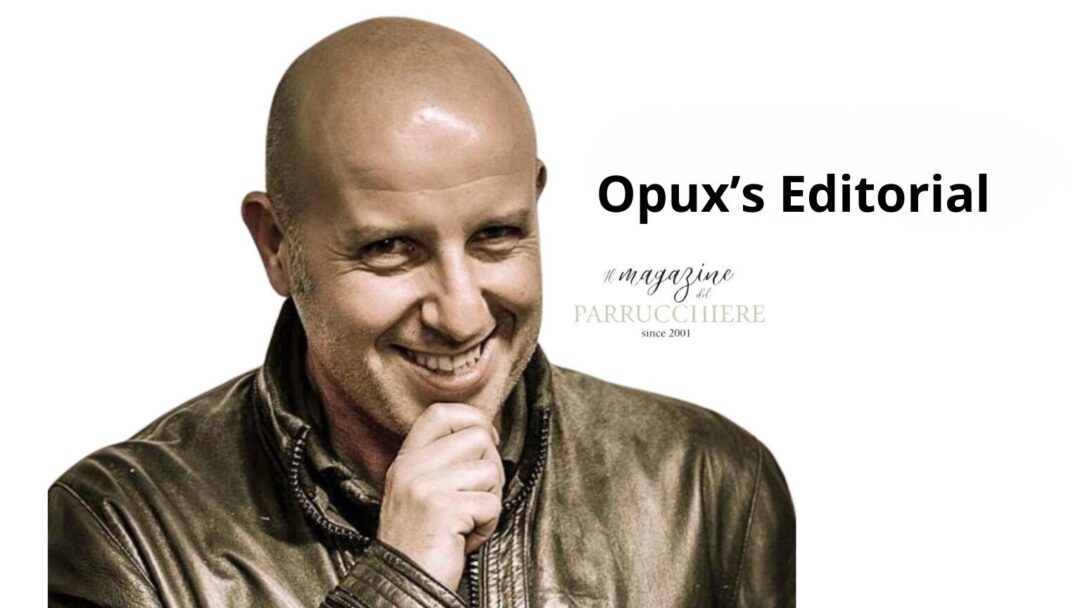Hairdressers as entrepreneurs… yeah, enough already!

Lately there’s a magic word floating around salons.
“Entrepreneur.”
You say it and you feel better. It’s like throwing a blazer over a stained t-shirt: outside you look like a CEO, underneath you still have bleach on your wrist.
Here’s the simple point: being an entrepreneur isn’t an identity. It’s a method.
And the method—spoiler—doesn’t get made up between a blow-dry and an Instagram story.
The difference between “entrepreneur” and “someone who works a lot”
There’s a huge group of hairdressers who work 10–12 hours a day and then say: “I’m an entrepreneur.”
No.
You’re a professional who works a lot. That’s already respectable.
But an entrepreneur does something different: they manage.
They manage pricing, time, costs, rules.
And most of all, they manage the fact that money doesn’t appear by magic. It comes from numbers.
Hard work is honest. Chaos isn’t.
The test that hurts (because it works)
If you want to know where you are, answer fast:
- Do you know what one salon hour costs you, all included?
- Do you know your margin on your main services?
- Do you know how many hours you “give away” each week through delays, unpaid extras, and client indecision?
- Is your price list a rule, or a mood?
- Do you have a weekly goal written down, or do you just “feel it”?
If you’re lost here, one thing is very clear:
you don’t have a small business. You have a big mess.
And mess costs money. Always.
The emotional scam: “people here don’t spend”
That line again. Right next to “winters aren’t what they used to be.”
Truth is, people do spend.
They spend where:
- they understand what they’re buying
- they see a result
- they feel control and competence
- they sense order
If your salon is a reality show and your price list is “we’ll see,” the client spends… somewhere else.
Not cruelty. Biology.
The entrepreneur isn’t the one who does “marketing.” It’s the one who doesn’t sell themselves cheap.
Another fairy tale: “I need marketing.”
Yes, you do.
But first you need to stop murdering your margin.
Because you can make the perfect reel, but if you:
- do three hours of work paid like one
- use top products without budgeting them
- cram impossible services into the schedule
- let anxiety drive you (“don’t lose the client!”)
…you’re doing marketing to bring clients into a system that burns them. Brilliant.
The problem isn’t competition. It’s that you have no rules.
I know. It sounds rude. That’s why it’s useful.
The difference between a salon that “stands” and a salon that “survives” is usually this:
1) Standard timing
If a service lasts “it depends,” you have a problem.
“It depends” is the black hole of margin.
2) A defended price list
Clear price. Explained. Justified.
Not “I’ll do it cheaper because I like you.”
3) Real consultation
If you don’t diagnose and you don’t explain the plan and the limits, the client compares you on price only.
And on price you always lose.
4) Paid extras
“Can you also do a quick blow-dry?”
Sure. And you pay for it. Otherwise it’s charity, not business.
5) Written policies
Delays, no-shows, last-minute changes, mind changes: you need a rule.
Rules aren’t mean. They’re hygiene.
The part nobody wants to hear: “entrepreneur” isn’t you. It’s your salon.
You can feel like an entrepreneur all you want.
But if the salon doesn’t produce margin, has no processes, and can’t run without you… it’s not a business.
It’s a stressful job with fixed costs.
And you can tell from one cruel detail:
if you stop for a week, what happens?
- If the salon keeps moving: you’re building a company.
- If everything collapses: you’re doing everything. So you are the product. And products get tired.
“But I love this job”
Great. I also love seeing skilled people win.
That’s why I’ll say it with no cuddles:
love doesn’t pay your taxes.
Talent doesn’t pay rent.
Passion doesn’t cover waste.
You need management. You need cold clarity. Sometimes you also need to say “no.”
Closing
So yes: hairdressers as entrepreneurs… but enough already.
Enough calling yourself that to feel okay.
Enough using the word as a shield to avoid looking at the numbers.
If you want to be an entrepreneur for real, you don’t need a new logo or “better photos.”
You need to do three boring things every week:
- look at the numbers
- fix the schedule
- defend your prices
Everything else is theatre. And theatre is usually paid by the audience. Not by you.
If this stung: good.
Comment with one word: “NUMBERS”, “PRICES”, or “SCHEDULE.”
The one that’s hurting you the most right now.
Opux – Founder, Il Magazine del Parrucchiere
Mini-bio: since 2001 I’ve worked in marketing and communication in the hair & beauty industry, between salons and brands. Here we talk real salons. Not slogans.
AI transparency (MdP h(AI)r)
Written by Opux with support from MdP h(AI)r for structure and editing.



















